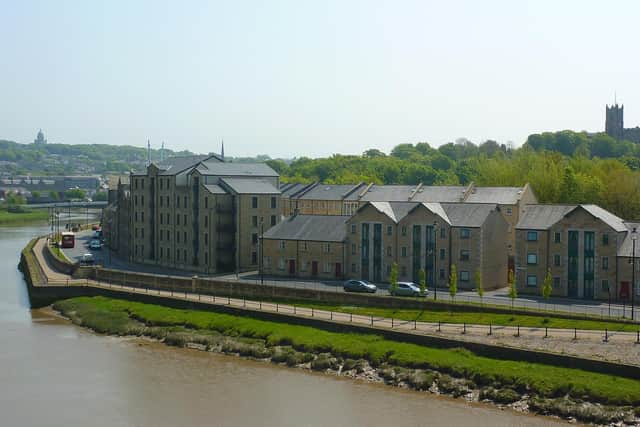River Lune’s trout and salmon cited in call for more action to protect Lancaster district's nature
and live on Freeview channel 276
The River Lune - which is important for trout and salmon - the Forest of Bowland Area of Outstanding Natural Beauty and part of the Yorkshire Dales National Park were cited as examples of valuable habitats which, overall, need more protection.
A majority of city councillors at the latest full council meeting backed a motion supporting a new Climate and Ecology Bill at Westminster and work on more local action, to build upon international and UK environmental agreements which are often not legally binding.
Advertisement
Hide AdAdvertisement
Hide AdDeputy council leader Kevin Frea, who put the motion forward, referred to recent global talks in Paris and Glasgow and the city council’s own climate emergency declaration, which all shape its work.


But in addition to cutting emissions into the air, more action is needed to protect the loss of natural spaces and wildlife.
He said local councils and others could set the agenda and lobby national government and politicians for actions to protect ecology.
“The Lancaster district has some really important assets,” he said. “The River Lune is a national asset and one of four especially for trout and salmon. We have the Forest of Bowland AONB and the Yorkshire Dales National Park in our district. This is an important area and we have to do our bit.”
Advertisement
Hide AdAdvertisement
Hide Ad“The UK is one of the most nature-depleted countries in the world,” he added. “More than one in seven of our plants and animals face extinction. More than 40 per cent are in decline.
“Humans have already caused irreversible climate change, the impacts of which are being felt in the UK and around the world.
“The global temperature has already increased by 1.2°C above pre-industrial levels, and the natural world has reached crisis point, with 28 per cent of plants and animals threatened with extinction.
“Lancaster City Council declared a climate emergency in January 2019 and has taken significant action towards reducing its own carbon emissions to net-zero by 2030. However, unless we drastically change course, the world is set to exceed the Paris Agreement’s 1.5°C limit.
Advertisement
Hide AdAdvertisement
Hide Ad“In the UK, the Met Office predicts that there is a 50:50 chance of this happening in the next five years. Pledges such as the Paris Agreement and Glasgow Pact and updated emissions targets are not legally-binding. The gap between pledges and policy leaves the world on-course for catastrophic warming of near 3°C.
“Following the ‘now or never’ Inter-governmental Panel on Climate Change report in 2022, the United Nations’ secretary general stated that we are on a fast-track to climate disaster. This is not fiction or exaggeration. It is what science tells us will result from our current energy policies.
“In addition, the UK Government’s net zero strategy stated that if we fail to limit global warming to 1.5°C, we risk reaching climatic tipping points and we could lose control of our climate for good.
"The 1.5°C goal is on ‘life support’ and only ambitious action from national and sub-national authorities, civil society, the private sector and local communities will help us realise it."
Councillors recommended writing to MPs David Morris and Cat Smith, letting them know the city council motion was passed and urging them to support the ecology bill.